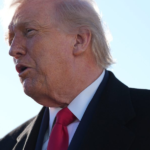As potential issuers of spot Bitcoin ETFs race to submit their final documents to U.S. regulators, a significant distinction is emerging among applicants regarding their proposed fee structures. Notably, the Grayscale Bitcoin Trust (GBTC) stands out at the upper end, suggesting a 1.5% fee if the U.S. Securities and Exchange Commission (SEC) approves its transformation into an exchange-traded fund. Although this would represent a reduction from GBTC’s current 2% fee, it positions Grayscale’s offering with a higher expense ratio compared to its competitors.
In the fiercely competitive $8 trillion U.S. ETF industry, the race to lower fees is a prominent feature, where even a slight difference in basis points can translate into substantial inflows, given the industry’s scale.
Despite GBTC’s significant advantage in terms of existing assets, boasting $27 billion since its establishment as a trust in 2013, its proposed expense ratio is notably higher than that of its rivals.

Bitwise and Ark / 21Shares are introducing a competitive edge by offering zero fees for the initial six months or the first $1 billion in assets, whichever comes first. Subsequently, their fees would rise to 0.24% and 0.25%, respectively.
VanEck’s HODL product has a proposed fee of 25 basis points, while BlackRock plans to charge 0.2% for the first year or until it reaches $5 billion in assets, eventually settling at 0.3%.
Bloomberg Intelligence ETF analyst James Seyffart notes that this ongoing fee competition is advantageous for end investors, as even marginal differences can result in significant financial implications.
Grayscale remains optimistic about GBTC’s prospects, asserting that it would continue to be a “best-in-class offering for investors.” The company highlights factors such as liquidity, tight spreads, high trading volumes, and a decade-long track record of operational success.
The crypto community is eagerly anticipating Wednesday, a key deadline for the SEC to take action on pending spot Bitcoin ETF applications.









